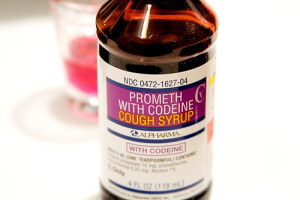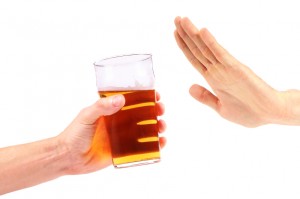Couch Syrup, that’s right couch not cough, although it is in actuality cough syrup, refers to a specific kind of liquid cough medicine – that containing promethazine and codeine. This is a by-prescription-only medication that people have been using recreationally and abusing. This is not your typical over-the-counter cough syrup; couch syrup contains potent drugs that can lead to overdose and death.
Couch syrup has many other slang names such as purple drank, sizzurp, lean, syrup, drank, purple jelly, and Texas tea.
First called purple drank, couch syrup has been a popular recreational drug in the rap and hip hop community in the southern United States, originating in Houston, Texas. Couch syrup is made more palatable by being mixed with soft drinks such as Sprite or Mountain Dew. Purple drank gets its name from the purplish hue from the dye in the cough syrup.
Couch Syrup Can Be Fatal
Both the codeine and the more potent promethazine are depressants which mean that they slow down the functions of the Central Nervous System (CNS), namely respiration. When overdose occurs, breathing slows to a complete stop. The person goes into respiratory arrest and then cardiac arrest. This is when death occurs.
Just like with other CNS depressants, mixing couch syrup with alcohol greatly increases the risk of respiratory failure and death.
Notable Deaths
Couch syrup has been either a confirmed or suspected cause of death among several well-known people. DJ Screw, who popularized the codeine-based drink, died of a codeine-promethazine-alcohol overdose on November 16, 2000, several months after the video to Three 6 Mafia’s single debuted.
Big Moe, one of DJ Screw’s successors died at age 33 in 2007, after suffering a heart attack and subsequently being in a coma. He was known to obsess over couch syrup and purple drank in his lyrics; this is apparent in his album titles: City of Syrup and Purple World. Needless to say, there was speculation that purple drank contributed to his death.
Couch Syrup and Alcoholism
According to the Urban Dictionary, couch syrup is “the liquor one hides in a couch (and throughout the house) while pretending to be sober.” This implies its relationship to an already well-known problem: alcoholism.
Signs of Alcoholism
If you are drinking couch syrup or alcohol and find that the following descriptions apply to you, then you should consider that your use is more than social or recreational.
If you:
- can’t quit drinking or control how much alcohol you drink
- need to drink more to get the same effect
- have withdrawal symptoms if you stop drinking (nausea, sweating, shakiness, and anxiety)
- spend a lot of time drinking and recovering from drinking
- have given up other activities in order to drink
- keep drinking even though it cause problems in your relationships
- keep drinking even though it is causing health problems
Other red flags include:
- Drinking in the morning and/or drinking alone
- Switching from beer to wine because you think this will keep you from drinking or from getting drunk
- Feeling guilty because of your drinking
- Making excuses for your drinking
- Buying alcohol from different stores and locations
- Worrying that you won’t have enough alcohol for an evening, weekend, or holiday
Sources:
http://www.urbandictionary.com/define.php?term=Couch%20syrup



